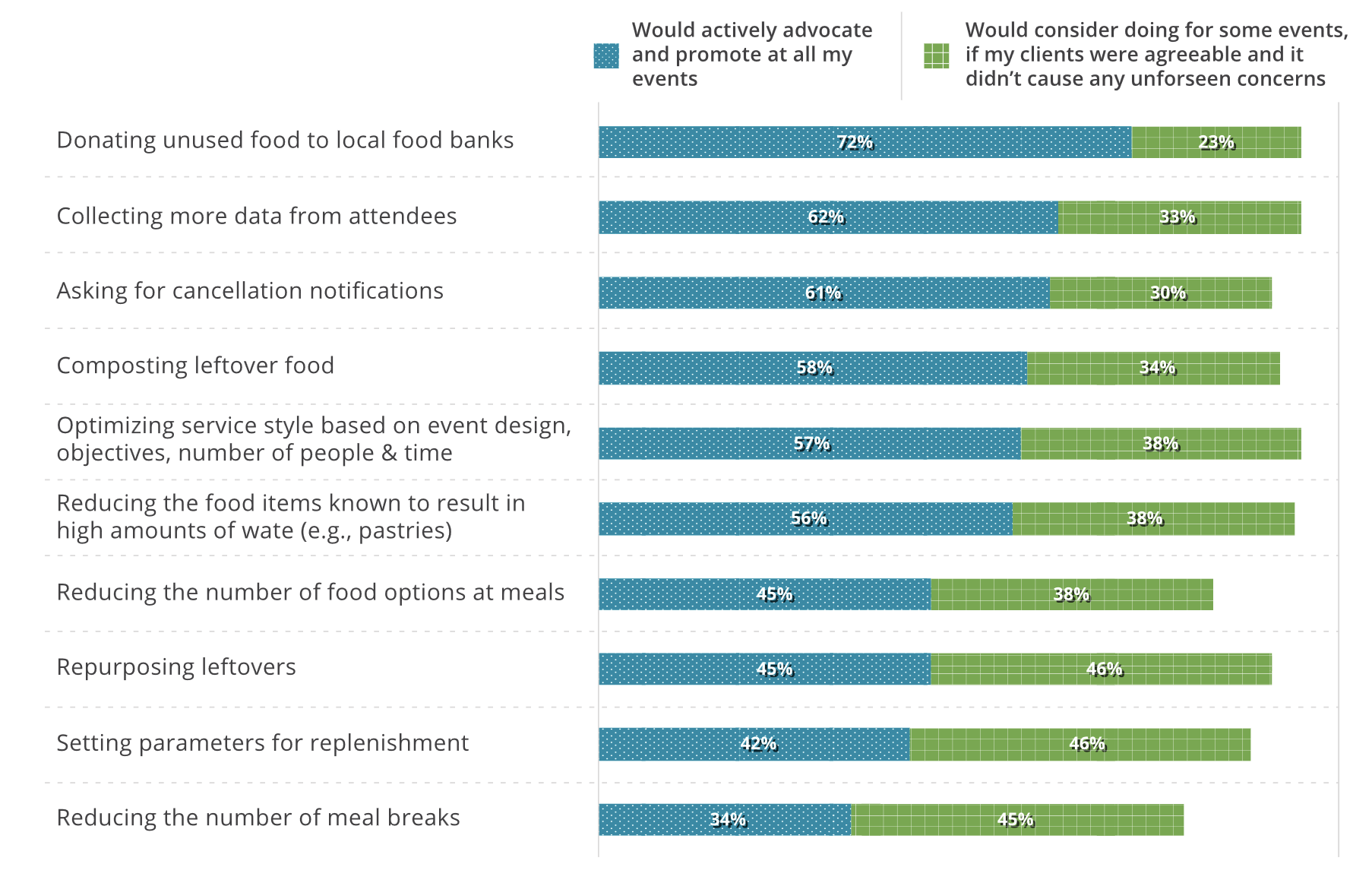What does the World Wildlife Fund, a widely respected organization known for global conservation efforts, have to do with the meetings and conventions industry?
The answer: food waste.
Consider the natural habitats that are destroyed to grow food that doesn’t get eaten, the chemicals used to grow food that doesn’t get eaten, and the money spent on food that doesn’t get eaten, says Aurora Dawn Benton, founder of sustainability consultancy Astrapto.
Meetings and conventions, she says, contribute significantly to the problem, with buffets and breaks routinely over-providing for attendees. Piles of bagels, vats of oatmeal, chafing dishes of bacon, tables pre-set with desserts, rolls, butter … every planner has seen such excess.
To learn more about the challenges around food waste at business events, the World Wildlife Fund collaborated with Benton and research partner Rick Garlick and Associates to survey 553 meeting planners about their attitudes toward food-waste prevention. Planners in the study averaged 20 events per year, with an average attendance of 366 people per event.
The resulting report, released in May, is called Unveiling the Appetite for Change: The Imperative for Addressing Food Waste Resulting from Professional Meetings and Events. Sponsored by Deloitte, the research reveals a fairly strong interest in preventing food waste among planners and their clients, but a disconnect with hotel partners in prioritizing change initiatives.
For instance, 55 percent of planners report client commitment to food-waste prevention is a “very high priority” and another 33 percent say clients “believe in it but could do more.” However, only 16 percent said venues “frequently” bring up food-waste prevention, while another 37 percent said venues “occasionally” proactively raise the subject. Further, only 45 percent of planners report “frequently” raising the topic themselves.
Interestingly, the majority of planners said that they would be “significantly more likely” (58 percent) or somewhat more likely (25 percent) to use a venue in the future if it proactively offered possible food-waste solutions.
So why aren’t the conversations happening?
Planners report being afraid to run out of food and being too busy to focus on waste prevention. Other reasons include lack of awareness of food-waste issues; resistance to change; prioritization of image, sales, and profitability over sustainability; perception that the food-waste issue is liberal or politically charged; financial considerations, including the desire to meet food-and-beverage minimum requirements.
Researchers also presented meeting professionals with 10 possible approaches to food waste prevention. They were asked if they would 1) actively advocate for the approach, 2) consider it for some events if clients were agreeable, or 3) neither. (Chart is from the WWF report):

The study also includes statistics on the perceived effectiveness of food-waste solutions; the importance of data collection and sharing; and various ideas for combating food waste.
Overall, it makes the case that “partnering with planners on preventing food waste at their meetings and events represents a critical best business practice for meeting venues. While some venues may feel constrained by the need to increase revenues by selling as much food as possible, the data suggests any revenue depreciation would easily be offset by increased preference share in the future.” Find the full study here.





